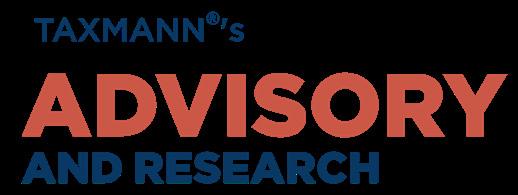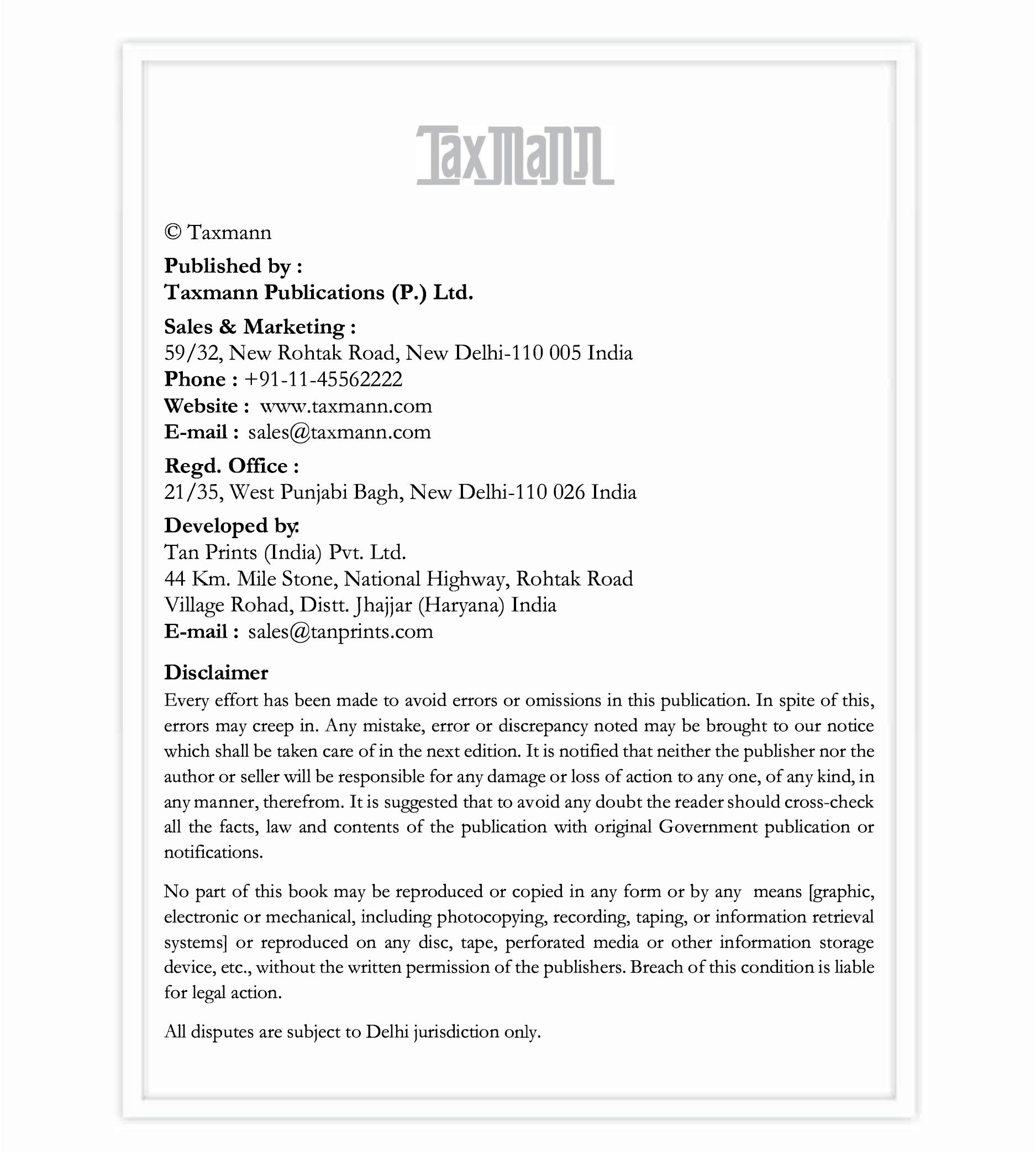






In the world of commercial disputes, arbitration is often our most effective tool. It offers a faster, more flexible path than traditional court battles. A key reason for its power lies in Section 17 of the Arbitration and Conciliation Act, 1996, which allows an arbitral tribunal to grant “interim measures.” Think these measures as a way to protect the subject matter of the dispute while arbitration is ongoing and to maintain the status quo so that the final award, whenever passed, doesn’t become meaningless.
But this power, as broad as it is, has its limits. It must respect other foundational legal principles. This brings us to a critical question: Can a tribunal, in its effort to secure a claim, disregard the fundamental principle of a company’s separate legal identity from its member(s)? Can it look past the legal shield that separates a business from its owners?
A recent, and highly important, judgment from the Bombay High Court in Saravana Prasad v. Endemol India Private Limited & Anr [2025] 176 taxmann.com 442 gives us a clear answer. The case centered on a modern corporate structure, the OnePerson Company (OPC). An arbitral tribunal had ordered both the OPC and its sole shareholder to deposit a substantial sum and disclose their finances, effectively treating them as a single entity.
In a nuanced decision, Justice Somasekhar Sundaresan drew a firm line. He upheld the interim relief against the company itself but decisively struck down the directions imposed upon its shareholder. This judgment is a powerful judicial reaffirmation of the corporate veil, providing crucial guidance for us as arbitrators and legal professionals. It underscores a vital principle: while a tribunal’s power to secure a claim is wide, it does not permit a casual disregard for the separate legal personality that the law grants to a company.
In this article, let’s delve into this landmark order. We will examine its factual background, dissect the legal principles involved, and explore its far-reaching implications for corporate governance and the practice of arbitration in India.
The dispute arose from a commercial relationship between Endemol India Private Limited (“Endemol”), a prominent media production house, and Innovative Film Academy Private Limited (“Innovative”), a One-Person Company (OPC) formed and wholly owned by Mr. Saravana Prasad (“Prasad”).
On March 10, 2021, Innovative and Endemol entered into a “Production Agreement.” Under this contract, Endemol was tasked with the creation, production, editing, post-production, and delivery of episodes for the popular television cookery show franchise “Masterchef” in four regional languages: Tamil, Telugu, Kannada, and
Malayalam. Payments were structured based on the achievement of specific milestones throughout the production lifecycle.
Endemol successfully produced and delivered the episodes for the Tamil and Telugu versions of the show. It subsequently raised four invoices totaling approximately Rs. 15.93 crores. It was common ground between the parties that Innovative had paid a sum of around Rs. 4.45 crores and that another sum of Rs. 1.08 crores was adjusted against dues from a separate contract. This left an outstanding balance of approximately Rs. 10.40 crores, which Endemol claimed was due and payable.
A pivotal piece of evidence in the dispute was a letter dated July 11, 2022 (“Confirmation Letter”), issued by Innovative. In this letter, Innovative appeared to confirm that a balance of Rs. 10.40 crores was indeed outstanding. While Endemol relied heavily on this as an admission of debt, Innovative later contested its conclusiveness, suggesting it was a routine confirmation for audit purposes.
Disputes over the outstanding payment led Endemol to initiate arbitration proceedings against both Innovative and Prasad. In the course of these proceedings, Endemol sought interim relief under Section 17 of the Act. The Arbitral Tribunal, after a prima facie review, passed an interim order (the “Impugned Order”) with two significant directions:
• Direction for Deposit – It ordered both “Respondents” (Innovative and Prasad) to jointly deposit the claimed sum of Rs. 10.40 crores into a fixed deposit with a nationalised bank, to be held untouched pending the final arbitral award.
• Direction for Disclosure – It mandated that both Innovative and Prasad provide sweeping disclosures, including details of all movable and immovable assets, encumbrances on those assets, shareholdings in other companies, incometax returns since 2019, and all bank account statements.
Aggrieved by this order, which effectively treated the company and its sole shareholder as a single entity for the purpose of liability, both Prasad and Innovative filed separate appeals before the Bombay High Court under Section 37(2)(b) of the Arbitration Act, challenging the legality and propriety of the Impugned Order.
The High Court’s judgment navigated through a confluence of provisions from the Arbitration and Conciliation Act, 1996, and the Companies Act, 2013.
•
•
•
Section 17 (Interim Measures Ordered by Arbitral Tribunal) – This section grants the arbitral tribunal wide-ranging powers to issue interim orders it deems necessary. This can include orders for the preservation of goods, securing the amount in dispute in the arbitration, or other interim injunctions.
Section 19 (Determination of Rules of Procedure) – This crucial provision states that an arbitral tribunal shall not be bound by the Code of Civil Procedure, 1908 (CPC) or the Indian Evidence Act, 1872.
Section 37(2)(b) (Appealable Orders) – This provision expressly allows a party to appeal to a court against an order of an arbitral tribunal that grants or refuses to grant an interim measure under Section 17. It is under this section that Prasad and Innovative approached the High Court.
•
•
Section 34 (Application for Setting Aside Arbitral Award) – While not directly applicable, the standards for setting aside a final award under this section—such as patent illegality or conflict with the “fundamental policy of Indian law”—often inform the court’s approach in a Section 37 appeal. The High Court drew upon this concept to critique the Impugned Order.
Section 28 (Rules Applicable to Substance of Dispute) – This section states that domestic arbitrations seated in India must follow Indian law. In international commercial arbitration, the tribunal applies the law chosen by the parties, or if none, any appropriate law. It can decide based on equity only if expressly authorised and must always consider contract terms and trade usages.
•
Section 2(62) (Definition of “One Person Company”) – This defines an OPC as “a company which has only one person as a member.” The introduction of this concept into Indian law was a deliberate policy choice to encourage individual entrepreneurs by allowing them to adopt a corporate structure with limited liability.
• Principle of Separate Legal Entity & Limited Liability – Though not a single section, this is the bedrock principle of corporate law, famously established in the English case of Saloman v. Saloman. The principle dictates that a company is an artificial legal person, distinct and separate from its shareholders. Consequently, the shareholders’ liability for the company’s debts is limited to the value of their shares. The High Court found the Arbitral Tribunal’s order to be in direct contravention of this principle.
• Order 38, Rule 5 (Attachment Before Judgment) – This rule allows a court to direct a defendant to furnish security if it is satisfied that the defendant, with intent to obstruct or delay the execution of any future decree, is about to dispose of their property.
Justice Somasekhar Sundaresan delivered a bifurcated judgment, meticulously separating the liability of the individual shareholder from that of the company.
The High Court found the Impugned Order’s directions against Prasad to be a “material error” and “legally unsustainable.” It set aside both the direction for him to deposit funds and the requirement for him to disclose his personal assets. The reasoning was anchored in the following points:
• Conflict with Fundamental Policy – The order was held to be in “direct conflict with the fundamental policy of Indian law.” This policy, enshrined in the Companies Act, 2013, is the deliberate creation of the OPC structure to allow an individual entrepreneur to ring-fence personal assets from business risks through the shield of limited liability.
• Improper Piercing of the Corporate Veil – The Arbitral Tribunal had provided no reasons whatsoever for piercing the corporate veil and treating Prasad and Innovative as one and the same. Such a measure is exceptional and typically requires evidence of fraud or impropriety, none of which was established on a prima facie basis.
• Logical Fallacy of “Alter Ego” – The Court forcefully rejected the respondent’s argument that Prasad, as the sole director and signatory, was the “alter ego” of the company and thus personally liable. Justice Sundaresan noted that this is the very design of an OPC. To use this intended structure as a reason to impose personal liability would “render the very framework of the OPC redundant and otiose.”
• No Prima Facie Case for Personal Liability – Since no final relief could likely be granted against Prasad personally for the company’s contractual dues, there was no basis for granting interim relief against him. An interim measure must be in aid of a potential final relief.
In stark contrast, the Court found no fault with the directions imposed upon the company, Innovative. It upheld both the requirement to deposit the disputed amount in a fixed deposit and the order for corporate disclosures.
• A “Plausible and Reasonable” View – The Court held that the Arbitral Tribunal had taken a “just, equitable and well balanced” approach. By directing the deposit into a fixed deposit in Innovative’s own name, the tribunal secured the disputed amount for the claimant (Endemol) without alienating the funds from the depositor (Innovative) before a final decision on merits.
• Wide Ambit of Section 17 – The judgment reiterated the legal principle, affirmed by the Supreme Court, that a tribunal’s powers under Section 17 are
wider than a court’s powers under Order 38, Rule 5 of the CPC. The tribunal is not strictly required to find that the respondent is dissipating assets with malicious intent. A prima facie admission of liability, such as the “Confirmation Letter,” could be a sufficient basis for an order to secure the amount.
• Limited Scope of Judicial Interference – The Court emphasised that in a Section 37 appeal, it is not its role to substitute its own view for that of the tribunal, as long as the tribunal’s view is plausible and not perverse. Since the tribunal’s order against Innovative was well-reasoned and balanced, it was unworthy of judicial interference.
The judgment navigated established precedents to support its dichotomous conclusion. The cases cited reflect the tension between protecting claimant rights and upholding corporate law principles.
5.1.
• Saloman v. Saloman & Co. Ltd. [1897] AC 22 – This was the intellectual and historical anchor for the court’s decision regarding Prasad. The High Court invoked this hallowed House of Lords case, which established the doctrine of the corporate veil and separate legal personality. In Saloman, a sole proprietor incorporated his business, with family members holding nominal shares. When the company went bankrupt, creditors tried to hold Mr. Saloman personally liable. The House of Lords ruled decisively that the company was a separate legal entity, and its debts were its own. The Bombay High Court saw the Arbitral Tribunal’s order against Prasad as a direct violation of this 125-yearold principle, which is now statutorily embodied in India’s Companies Act.
• Essar House (P) Ltd. v. Arcellor Mittal Nippon Steel (India) Ltd. (2022) SCC
OnLine SC 1219 – This Supreme Court decision was the cornerstone of the High Court’s reasoning for upholding the order against Innovative. The Court cited Essar House to affirm that an arbitral tribunal is not strictly bound by the provisions of the CPC. The Supreme Court had held that the power under Section 17 is broad, and an order to secure a claim can be justified even on the basis of a potential “diminution in value” of assets, without needing to prove active or fraudulent dissipation as required under Order 38, Rule 5 of the CPC. This precedent gave the High Court the legal basis to agree that the tribunal acted within its jurisdiction by ordering the deposit based on the prima facie evidence of the Confirmation Letter.
• Jagdish Ahuja v. Cupino Ltd. (2020) SCC OnLine Bom 849 and Ajay Singh v. Kal Airways (2017) SCC OnLine Del 8934 – The judgment noted that these High Court decisions, which had previously articulated the wider scope of Section 17, were approved by the Supreme Court in Essar House. This lineage of cases demonstrates a consistent judicial trend towards empowering arbitral tribunals with robust tools for interim relief, a trend the court followed with respect to the company, Innovative.
The judgment’s most insightful analysis came in its rejection of the arguments advanced by Endemol’s counsel to justify the order against Prasad. The Court did not just disagree; it dismantled the very premise of these arguments.
The primary argument refuted was that Prasad’s deep and total involvement in the OPC made him its “alter ego,” thus justifying personal liability. The Court dismissed this as a fundamental misunderstanding of the OPC structure. The law intends for an OPC to be the “business and social alter ego” of its owner. This feature is not a bug to be exploited for piercing the veil; it is the core reason for the OPC’s existence, designed to allow an individual to run a business with limited liability. To use this design as a weapon against the shareholder would be to defeat the legislative intent entirely.
Endemol’s counsel attempted to use the Supreme Court’s decision in Cox and Kings Ltd. v. SAP India Private Limited (2024) 4 SCC 1 to argue that Prasad had given “implied consent” to be bound. The High Court labeled this submission “totally untenable.” It drew a sharp distinction:
• Cox & Kings primarily deals with the “group of companies” doctrine, a theory used to bind a non-signatory entity to an arbitration agreement if there is a clear intention for it to be a party to the transaction. It is about jurisdiction and the scope of the arbitration clause.
• The present case was not about binding Prasad to the arbitration agreement (he was already a party to the proceedings), but about fastening the company’s substantive financial liability onto him.
The High Court clarified that being the signatory director for a company does not create personal liability for the company’s contractual obligations. Such a proposition would shatter the foundations of corporate law.
The High Court’s decision rests on three pillars of reasoning, which together form a cohesive and compelling judicial philosophy.
The absolute core of the judgment was its elevation of the principle of limited liability from a mere legal technicality to a “fundamental policy of Indian law.” The Court found that the Arbitral Tribunal’s failure to respect the separate legal entity of the OPC was not just an error, but an action contrary to this fundamental policy. The complete absence of any reasoning in the Impugned Order for piercing the corporate veil was a fatal flaw, making that part of the order patently illegal and unsustainable.
The Court demonstrated a clear understanding of its limited jurisdiction under Section 37. It was not acting as a court of first appeal to rehear the matter on merits. Its role was to review the legality and reasonableness of the tribunal’s interim order. This led to its bifurcated approach: it interfered where the tribunal crossed a fundamental line (imposing liability on the shareholder) but refrained from interfering where the tribunal’s decision was a “plausible view” (ordering a deposit by the company). This balanced approach respects the autonomy of the arbitral process while retaining a crucial check against legal overreach.
The ultimate basis of the judgment was the simple yet profound distinction between the corporate entity (Innovative) and its human shareholder (Prasad). The Arbitral Tribunal had conflated the two, imposing identical obligations on both. The High Court meticulously disentangled them. It recognized that Innovative, as a party to the contract with a prima facie admitted debt, could be subjected to an order securing the claim. Simultaneously, it recognized that Prasad, shielded by the corporate veil and not personally a party to the contract’s obligations, could not be subjected to the same order without extraordinary and well-reasoned justification, which was absent.
The High Court’s ruling firmly reaffirms that an OPC’s shareholder cannot be treated as personally liable without compelling justification. That clarity is welcome.
But the order upholding interim directions against the company opens up a quiet but important concern—can disputed commercial dues be locked away this early in arbitration, even before liability is established?
Directing the company to park Rs. 10.4 crores in a fixed deposit—on the back of a contested audit confirmation—may set a precedent where tribunals begin treating interim relief as a quasi-freeze on operating capital. That’s not just a legal line; it’s a business risk. Especially for closely-held companies or lean setups like OPCs, this kind of early lock-in can disrupt operations, strain cash flow, or even trigger downstream defaults.
The judgment doesn’t overstep. But it does highlight the need for future judicial guidance on when and how far tribunals can go while issuing protective orders— particularly where the final liability is yet to be proved, and no signs of asset dissipation are shown.
The Bombay High Court’s judgment reinforces a core principle of corporate law: the separation between a company and its shareholder is not a formality—it’s a legal boundary that can’t be crossed lightly. By striking down interim directions against the OPC’s shareholder while upholding those against the company, the Court has respected the intent behind the OPC structure and reaffirmed that limited liability remains a meaningful protection, not just a paper shield.


Founded 1972


Evolution From a small family business to a leading technology-oriented Publishing/Product company


Expansion

Launch of Taxmann Advisory for personalized consulting solutions

Aim
Achieve perfection, skill, and accuracy in all endeavour

Growth
Evolution into a company with strong independent divisions: Research & Editorial, Production, Sales & Marketing, and Technology

Future
Continuously providing practical solutions through Taxmann Advisory
Editorial and Research Division
Over 200 motivated legal professionals (Lawyers, Chartered Accountants, Company Secretaries)
Monitoring and processing developments in judicial, administrative, and legislative fields with unparalleled skill and accuracy
Helping businesses navigate complex tax and regulatory requirements with ease

Over 60 years of domain knowledge and trust
Technology-driven solutions for modern challenges
Ensuring perfection, skill, and accuracy in every solution provided
Income Tax
Corporate Tax Advisory
Trusts & NGO Consultancy
TDS Advisory
Global Mobility Services
Personal Taxation
Training
Due Diligence
Due Dilligence
Advisory Services
Assistance in compounding of offences
Transactions Services
Investment outside India
Goods
Transaction Advisory
Business Restructuring
Classification
Due Diligence
Training
Advisory
Trade Facilitation Measures
Corporate
Corporate Structuring
VAT Advisory
Residential Status

Naveen Wadhwa
Research and Advisory [Corporate and Personal Tax]
Chartered Accountant (All India 24th Rank)
14+ years of experience in Income tax and International Tax
Expertise across real estate, technology, publication, education, hospitality, and manufacturing sectors
Contributor to renowned media outlets on tax issues

Vinod K. Singhania Expert on Panel | Research and Advisory (Direct Tax)
Over 35 years of experience in tax laws
PhD in Corporate Economics and Legislation
Author and resource person in 800+ seminars

V.S. Datey Expert on Panel | Research and Advisory [Indirect Tax]
Holds 30+ years of experience
Engaged in consulting and training professionals on Indirect Taxation
A regular speaker at various industry forums, associations and industry workshops
Author of various books on Indirect Taxation used by professionals and Department officials

Manoj Fogla Expert on Panel | Research and Advisory [Charitable Trusts and NGOs]
Over three decades of practising experience on tax, legal and regulatory aspects of NPOs and Charitable Institutions
Law practitioner, a fellow member of the Institute of Chartered Accountants of India and also holds a Master's degree in Philosophy
PhD from Utkal University, Doctoral Research on Social Accountability Standards for NPOs
Author of several best-selling books for professionals, including the recent one titled 'Trust and NGO's Ready Reckoner' by Taxmann
Drafted publications for The Institute of Chartered Accountants of India, New Delhi, such as FAQs on GST for NPOs & FAQs on FCRA for NPOs.
Has been a faculty and resource person at various national and international forums

the UAE
Chartered Accountant (All India 36th Rank)
Has previously worked with the KPMG

S.S. Gupta Expert on Panel | Research and Advisory [Indirect Tax]
Chartered Accountant and Cost & Works Accountant
34+ Years of Experience in Indirect Taxation
Bestowed with numerous prestigious scholarships and prizes
Author of the book GST – How to Meet Your Obligations', which is widely referred to by Trade and Industry

Sudha G. Bhushan Expert on Panel | Research and Advisory [FEMA]
20+ Years of experience
Advisor to many Banks and MNCs
Experience in FDI and FEMA Advisory
Authored more than seven best-selling books
Provides training on FEMA to professionals
Experience in many sectors, including banking, fertilisers, and chemical
Has previously worked with Deloitte
Taxmann Delhi
59/32, New Rohtak Road
New Delhi – 110005 | India
Phone | 011 45562222
Email | sales@taxmann.com
Taxmann Mumbai
35, Bodke Building, Ground Floor, M.G. Road, Mulund (West), Opp. Mulund Railway Station Mumbai – 400080 | Maharashtra | India
Phone | +91 93222 47686
Email | sales.mumbai@taxmann.com
Taxmann Pune
Office No. 14, First Floor, Prestige Point, 283 Shukrwar Peth, Bajirao Road, Opp. Chinchechi Talim, Pune – 411002 | Maharashtra | India
Phone | +91 98224 11811
Email | sales.pune@taxmann.com
Taxmann Ahmedabad
7, Abhinav Arcade, Ground Floor, Pritam Nagar Paldi
Ahmedabad – 380007 | Gujarat | India
Phone: +91 99099 84900
Email: sales.ahmedabad@taxmann.com
Taxmann Hyderabad
4-1-369 Indralok Commercial Complex Shop No. 15/1 – Ground Floor, Reddy Hostel Lane Abids Hyderabad – 500001 | Telangana | India
Phone | +91 93910 41461
Email | sales.hyderabad@taxmann.com
Taxmann Chennai No. 26, 2, Rajan St, Rama Kamath Puram, T. Nagar
Chennai – 600017 | Tamil Nadu | India
Phone | +91 89390 09948
Email | sales.chennai@taxmann.com
Taxmann Bengaluru
12/1, Nirmal Nivas, Ground Floor, 4th Cross, Gandhi Nagar
Bengaluru – 560009 | Karnataka | India
Phone | +91 99869 50066
Email | sales.bengaluru@taxmann.com
Taxmann Kolkata Nigam Centre, 155-Lenin Sarani, Wellington, 2nd Floor, Room No. 213
Kolkata – 700013 | West Bengal | India
Phone | +91 98300 71313
Email | sales.kolkata@taxmann.com
Taxmann Lucknow
House No. LIG – 4/40, Sector – H, Jankipuram Lucknow – 226021 | Uttar Pradesh | India
Phone | +91 97924 23987
Email | sales.lucknow@taxmann.com
Taxmann Bhubaneswar
Plot No. 591, Nayapalli, Near Damayanti Apartments
Bhubaneswar – 751012 | Odisha | India
Phone | +91 99370 71353
Email | sales.bhubaneswar@taxmann.com
Taxmann Guwahati
House No. 2, Samnaay Path, Sawauchi Dakshin Gaon Road
Guwahati – 781040 | Assam | India
Phone | +91 70866 24504
Email | sales.guwahati@taxmann.com